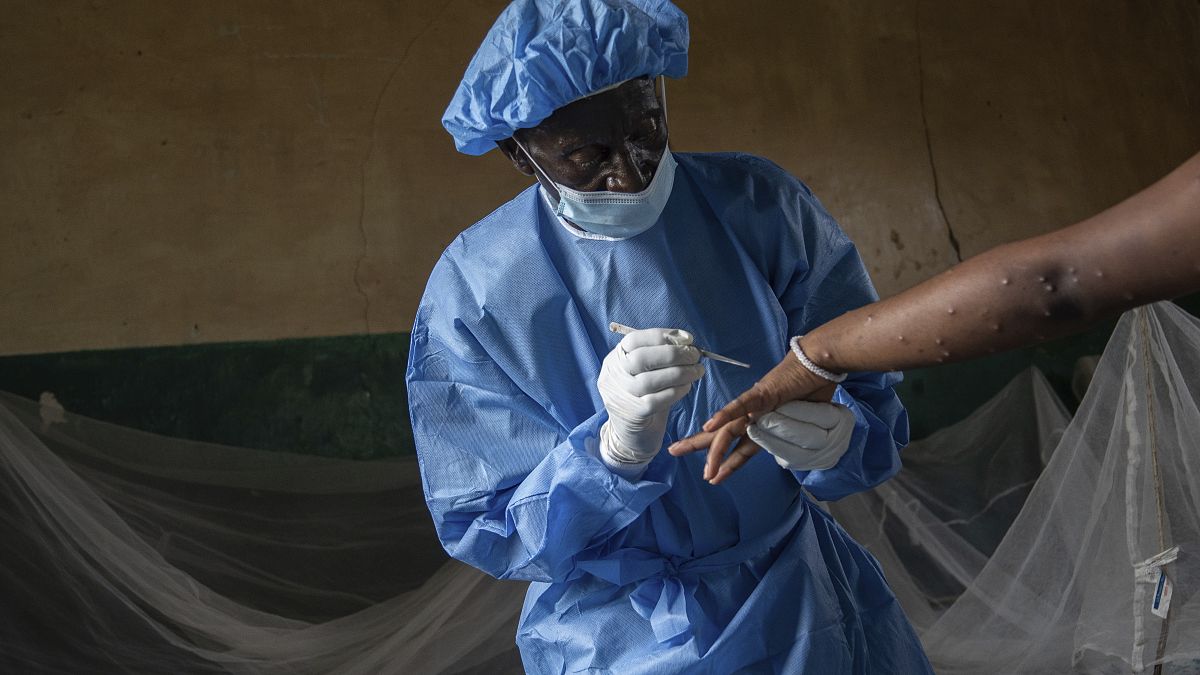The vaccines should arrive later this year, according to vaccine alliance Gavi.
The region’s upsurge of mpox cases has been centred in the Democratic Republic of the Congo, where a new mutation of the virus emerged in 2023, but other countries are dealing with their own outbreaks.
More than 26,500 mpox cases and 724 deaths have been reported in 15 African countries since the beginning of this year, according to the Africa Centres for Disease Control and Prevention (Africa CDC), and a lack of vaccines has hindered the public health response.
Gavi, which is a public-private partnership to make vaccines accessible in low-income countries, said it will pay for the doses through its First Response Fund, a $500 million (€468 million) emergency fund created earlier this year to quickly secure shots for countries without robust vaccine programmes during health crises.
The mpox vaccine purchase is Gavi’s first dip into the fund.
“The First Response Fund was designed in collaboration with Gavi donors and partners specifically to provide rapid early funding for emergencies such as mpox,” Gavi CEO Dr Sania Nishtar said.
The vaccines come from Danish manufacturer Bavarian Nordic and will arrive sometime in 2024.
The announcement comes days after the World Health Organization (WHO) approved the vaccine, making it possible for donors to buy up supplies. The shots will be allocated to the hardest-hit countries based on WHO criteria, which prioritise high-risk populations.
“We are committed to working with affected governments and our partners to turn these vaccines into vaccinations as quickly and effectively as possible,” Nishtar said, adding that the group also wants to create a global vaccine stockpile – if it secures enough funding.
Gavi’s purchase puts the total number of vaccines pledged for Africa’s mpox response at more than 4.1 million. European countries, the United States, and Bavarian Nordic have promised 620,000 doses, according to the WHO, and Japan has pledged 3 million shots from another vaccine manufacturer.
The first shots from the European Union arrived earlier this month.
The Africa CDC has estimated it will need 10 million shots to quell the mpox outbreak, which the WHO declared a public health emergency in August.
Mpox spreads through close contact with an infected person, and can cause fever, headaches, pains, fatigue, swollen lymph nodes, and skin lesions that last two to four weeks.

